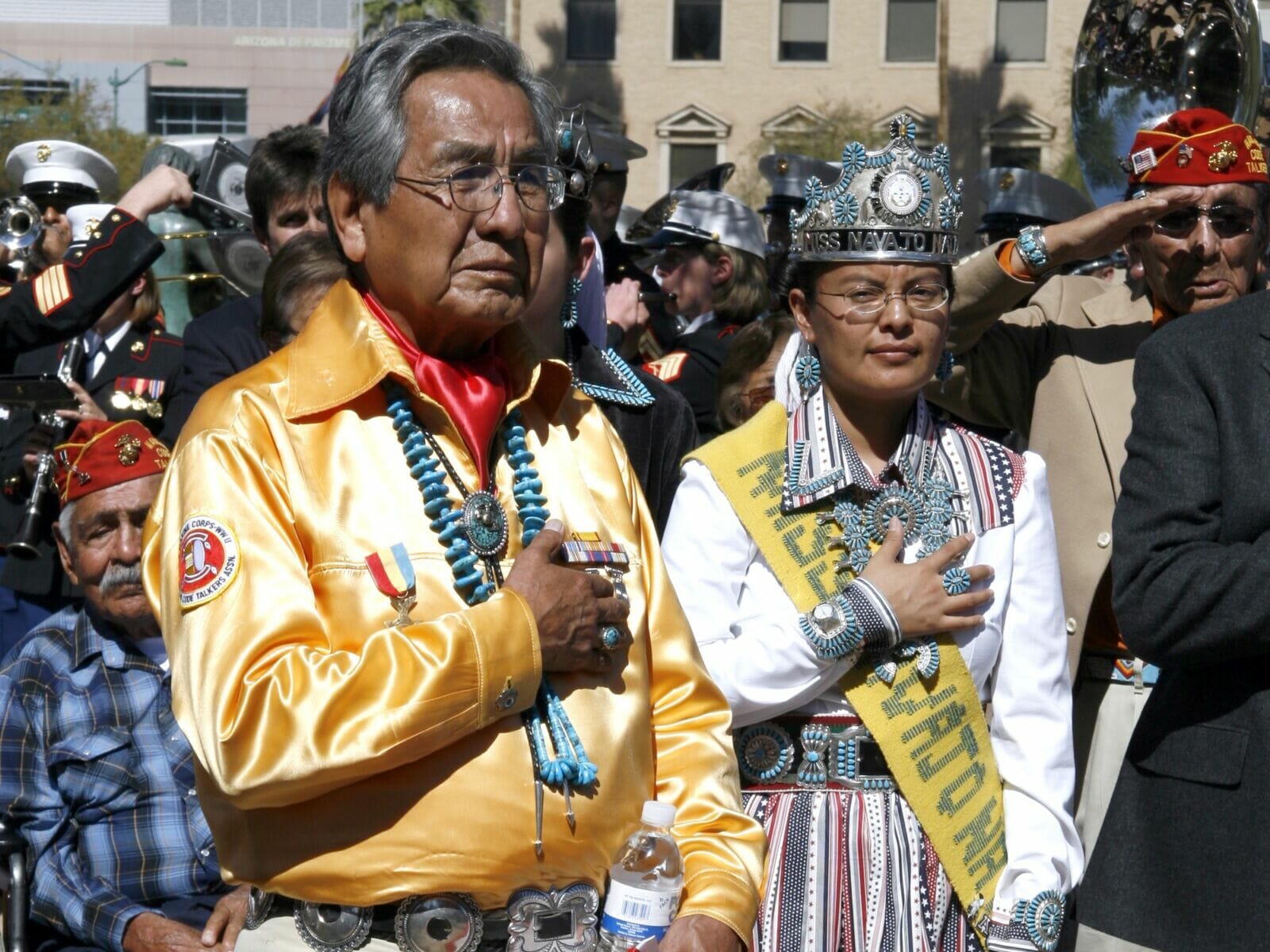A senate bill passed in the last Arizona Legislative session and signed into law on March 26 declares August 14 as National Navajo Code Talkers Day, to commemorate their service to the country.
The bill, SB1802, is sponsored by Sen. Jamescita Peshlakai, and supported by several members of the Gila River Indian Community and the Salt River Pima-Maricopa Indian Community.
It establishes a day to recognize the approximate 420 indiginous veterans who created and used a military code with the Navajo language and English alphabet to transmit operations and messages during WWII, without having ever been broken by the Japanese military during use. The Navajo Code Talkers were one of the largest contributing factors to the American victory at Iwo Jima.
READ ALSO: Centennial Series: Arizona Military Milestones
However, the recognition of the Navajo Code Talkers is more than just a single day of celebration, and represents a long line of historical and cultural significance for Indigenous peoples.
Diversifying our historical knowledge begins with education, and requires accessible learning materials for these events. This is a priority for educators like George Colburn Ph.D, a historian and filmmaker who has dedicated several years to creating an educational documentary about the Navajo Code Talkers and their experiences, titled “A Journey of Remembrance.”
“I try to turn all my programs into media-based education packets. I do not like to speak for the code talkers, I’m really the messenger of their words,” Colburn said. “I had no desire to make a war movie, I saw it as a window into the unknown history of our native people.”
Colburn’s piece has been used as a learning tool in a variety of ways, from middle school classrooms to state employee training, pushing the education of a history that is often overlooked.
“People were on a very deliberate path to destroy their culture, but couldn’t. In this country there is an unknown history that is not taught,” Colburn said.
This education includes celebrations to honor the Navajo Code Talkers. One of the earliest facilitators of these events is Michael Smith, who is not only Navajo, but is the son of a code talker veteran himself.
The original Navajo Code Talkers today are of a dwindling population, and Smith’s efforts are to immortalize their legacy. His first celebration was in 2004 with his father, a simple dinner with the men after their Navajo Code Talkers Association meeting.
“The first event started with approximately 60 men living, and 33 attending. We have four left,” Smith said. “Throughout all the years I am very humbled to have been able to meet so many people who want to come out and honor the men. It allowed them to do that on a personal level.”
Among the many participants, Smith noted various military officers, representatives from the Marine Corps, and politicians like former Sen. John McCain.
“To have legislators vote to declare this day an Arizona state holiday is remarkable. It helps educate the public about Navajo Code Talkers on a scale that I don’t even think I could measure,” Smith said.
Smith calls back to the original proclamation signed by former President Ronald Reagan in 1982, in which the word “Navajo” was spelled with an “h”–that is how minimal involvement was at the time. A historical article titled “American Indian Code Talkers” by the National World War II Museum recounts this neglect of their culture.
“Even when the WWII code talker program was declassified in 1968, national recognition of code talkers was slow,” the article said. “It wasn’t until 2001 that Congressional Gold Medals were given to the Navajo and other code talkers.”
Navajo Marines also faced U.S. pressures to exploit and stifle their language.
“Despite their heroic contributions during the war, code talkers were told that they had to keep their work secret,” the museum wrote. Smith told the story of one code talker veteran who kept his secret well into old age, and was referred to generations later as “Grandpa Secret.”
“The U.S. used Navajo language in battle as a secret code, but yet, still prevented the same men who went back to boarding school from speaking Navajo, with a policy forcing them to speak English,” Smith said. “It was a problem of cultural assimilation.”
Today, Smith and other Navajo descendants work to keep the spirit of the code talker celebrations alive, and look forward to the evolution of the holiday with each passing year. Still, with growing recognition, there is more progress to be made.
“I’d like to see a Navajo Code Talkers museum and governments expend funds towards honoring these men,” Smith said. “Truly, I’d like to see the original proclamation fulfilled the way it was written.”




